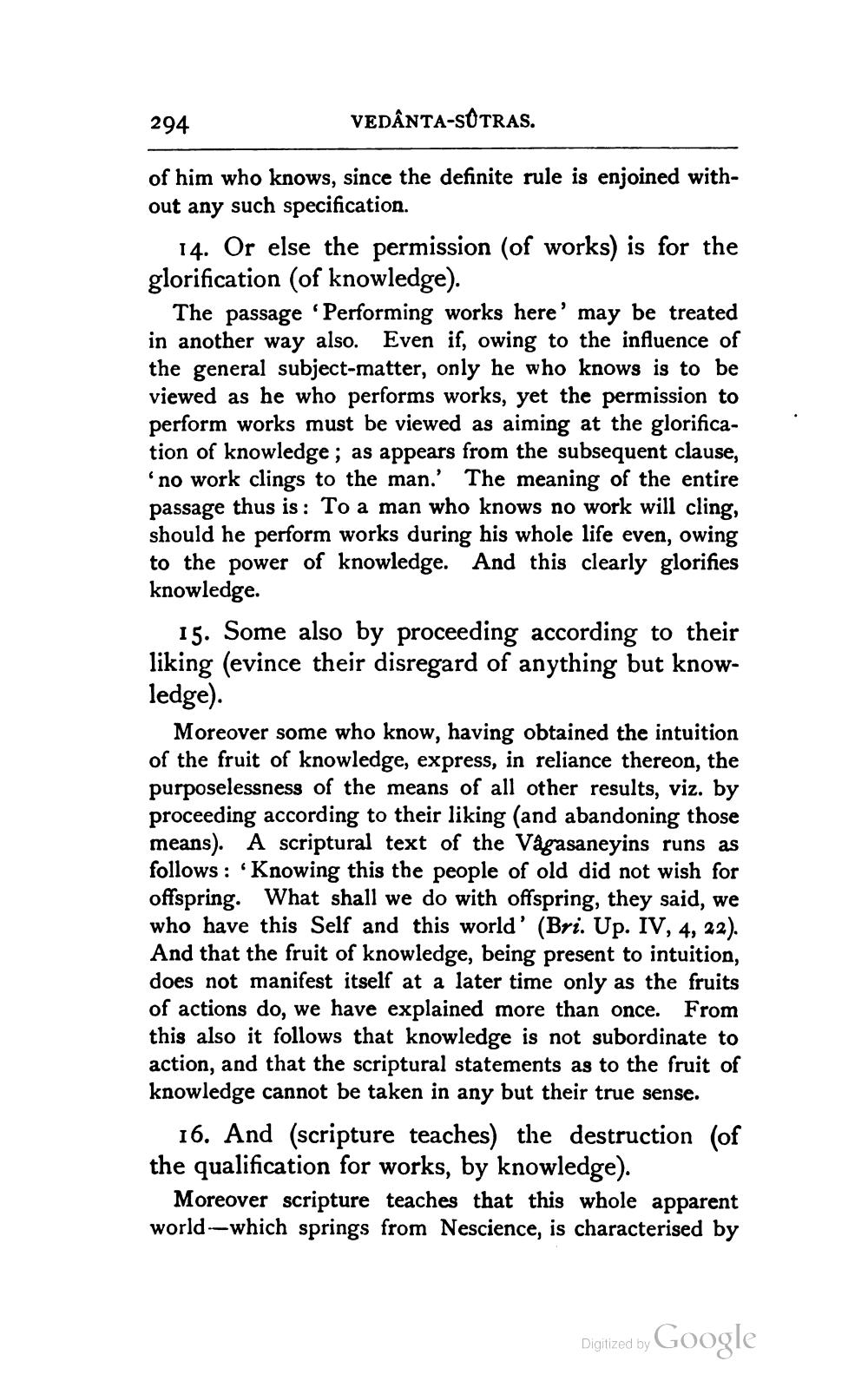________________
294
VEDÂNTA-SÚTRAS.
of him who knows, since the definite rule is enjoined without any such specification.
14. Or else the permission (of works) is for the glorification (of knowledge).
The passage 'Performing works here may be treated in another way also. Even if, owing to the influence of the general subject-matter, only he who knows is to be viewed as he who performs works, yet the permission to perform works must be viewed as aiming at the glorification of knowledge; as appears from the subsequent clause, 'no work clings to the man.' The meaning of the entire passage thus is: To a man who knows no work will cling, should he perform works during his whole life even, owing to the power of knowledge. And this clearly glorifies knowledge.
15. Some also by proceeding according to their liking (evince their disregard of anything but knowledge).
Moreover some who know, having obtained the intuition of the fruit of knowledge, express, in reliance thereon, the purposelessness of the means of all other results, viz. by proceeding according to their liking (and abandoning those means). A scriptural text of the Vågasaneyins runs as follows : “Knowing this the people of old did not wish for offspring. What shall we do with offspring, they said, we who have this Self and this world' (Bri. Up. IV, 4, 22). And that the fruit of knowledge, being present to intuition, does not manifest itself at a later time only as the fruits of actions do, we have explained more than once. From this also it follows that knowledge is not subordinate to action, and that the scriptural statements as to the fruit of knowledge cannot be taken in any but their true sense.
16. And (scripture teaches) the destruction of the qualification for works, by knowledge).
Moreover scripture teaches that this whole apparent world-which springs from Nescience, is characterised by
Digitized by
Digilzed by Google




